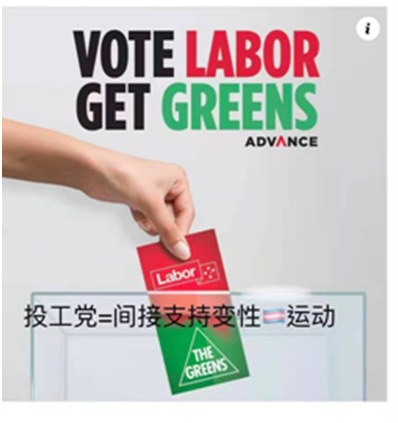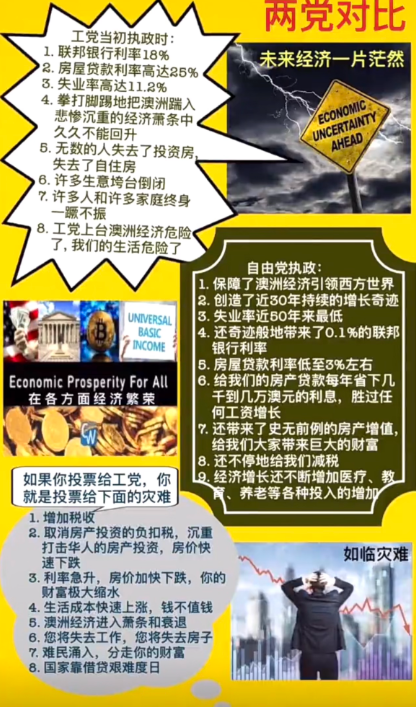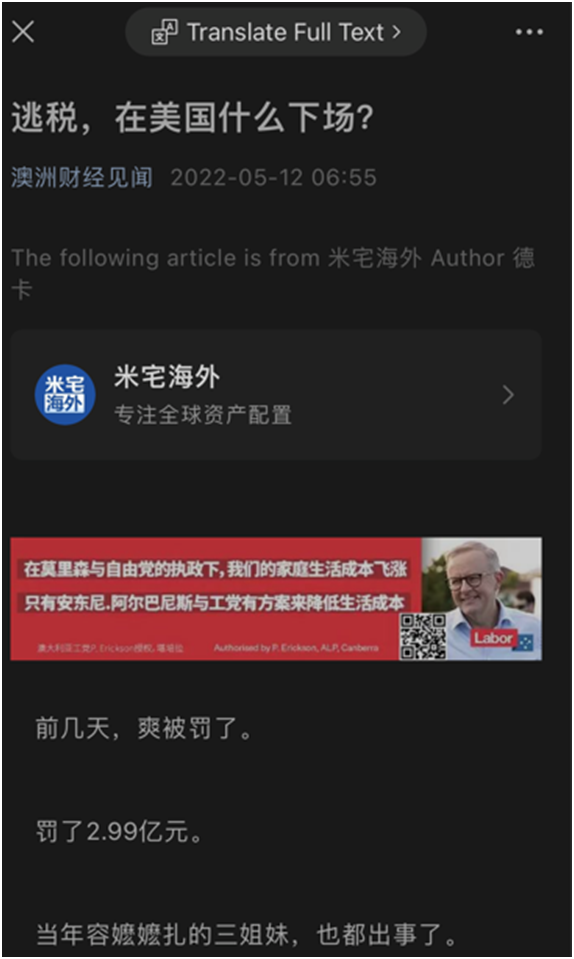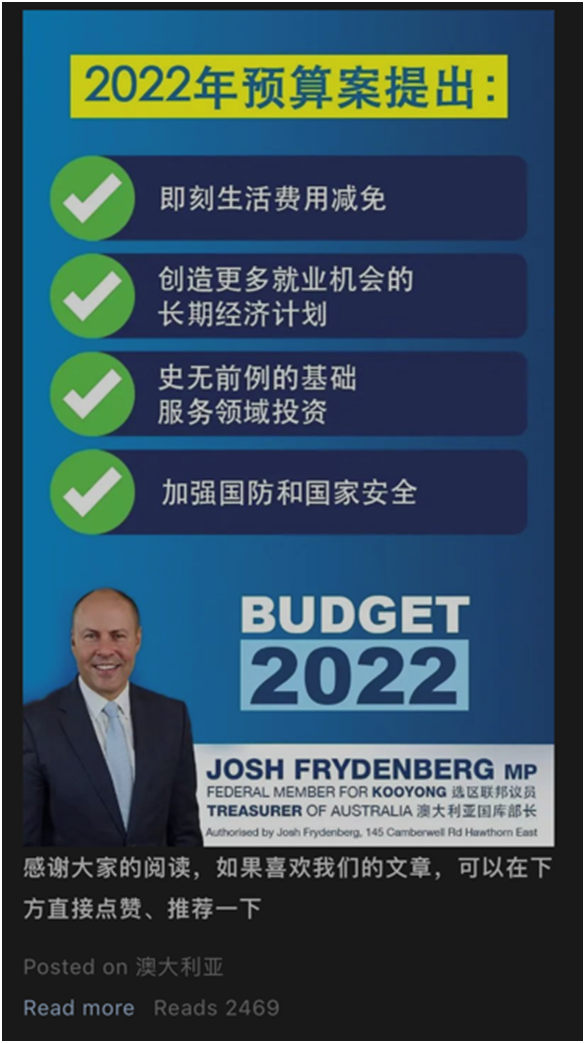

5 min read
This article is more than 3 years old
Political ads on messaging app WeChat are banned. So why are they showing up?
Authorised political advertising, as well as misinformation, has been circulating on Chinese social media app WeChat this federal election campaign. So, what is its parent company doing about it?
Published
Updated
By Lin Evlin, Zixun Wang
Source: SBS News
Image: Political advertising and election misinformation is appearing on WeChat.
Social media in Australia is awash with political messaging, and users of the popular Chinese messaging app, WeChat, are also seeing political advertising, and misinformation, on the platform.
Experts in Chinese social media believe that unlike the 2019 federal election, much of the misinformation on the app, which is used by an estimated three million people in Australia, is being shared in private groups.
“Private groups on WeChat are like Whatsapp group chats - unless you are invited into the group, it is very difficult to police,” said University of Melbourne lecturer Wilfred Wang.
“Public subscription accounts, or official accounts, are much quieter this time around, so we really don’t know the true extent of misinformation circulating on the app, and it’s a problem other social media platforms face as well.”
In one post, which SBS News has seen, an image was shared in a private group which used an existing ad by conservative lobby group Advance Australia but cuts off the authorisation tagline and adds onto it in Chinese: “a vote for Labor is a vote in support of the transgender movement”.
Another falsely claims Labor would introduce a carbon tax and inflation would soar by 10 per cent, if it was elected.
Other posts, first reported by the Guardian, falsely claim that negative gearing will be abolished, and refugees will flood the country and take away peoples’ wealth if Labor wins the election have also been identified circulating in private chat groups.
Mr Wang believes the posts are being shared by supporters or proxies of political candidates.
“I think they are being shared at an individual level simply by people who want their favoured party or candidate to win and then on the other hand, there are more systematic campaigns, which we have seen from media reports, by supporters of candidates," he said.

This image, posted on WeChat, doctored existing material to include misinformation in Chinese.
More discerning audience
Melbourne-based WeChat researcher, Fan Yang, and a team of researchers from Deakin and Monash universities have monitored more than 3,000 political news articles and comments posted on WeChat public subscription accounts for the past 12 months, which includes the first three weeks of the election campaign.
Ms Yang said she has noticed an increasing awareness by WeChat users of misinformation.

A post in a WeChat discussion making false claims about the Labor party.
“We have also seen the Australian Electoral Commission, even though they don’t hold an official account, they have been mobilising information across influential accounts to educate Chinese migrants about how to vote, the significance of a vote and how to identify misinformation.”
The Australian Electoral Commission (AEC) confirmed to SBS News that it has "actioned unauthorised content on WeChat this federal election and will continue to do so as necessary."

A paid Labor Party advertisement appearing on an account on WeChat.
“If a user sees any questionable material, we ask them to report it to us and will handle in accordance with our terms of service.”
Political advertising on WeChat
Political ads that are fully attributed still breach WeChat’s terms of use, which explicitly bans “promotional political content”.
However, numerous examples of political ads can be found on the official WeChat account of Sydney-based website, Australian Financial News (AFN). These include ads about Labor leader Anthony Albanese and independent candidate Kylea Tink, as well as Treasurer Josh Frydenberg and the communications minister, Paul Fletcher.
Mr Frydenberg’s office confirmed to SBS News it has paid banner advertisements on AFN which promote the Morrison government.

A paid advertisement for Treasurer Josh Frydenberg appearing on an account on WeChat.
An article about the Labor party on AFN's WeChat page listed examples of how Australia will be much better off if Labor wins the election. The Labor party did not respond to specific questions about whether or not the article was paid for but a spokesperon told SBS News, the party "wants to communicate with all Australians about our plan for a better future" and that "WeChat offered a way to do that."
The Coalition was contacted for comment.
In response to questions from SBS News about why such ads exist despite the platform’s rules, a senior member of Tencent’s communications team said the platform does not sell any advertising outside of mainland China and any political ads found should be reported.
Fergus Ryan, a senior analyst at the Australian Strategic Policy Institute’s (ASPI) cyber policy centre said a contradiction remains.
“The rule is fairly clear cut – political advertising is not permitted but as anyone who is using the app can see, there are ads in articles that are embedded on the platform, the articles are not links which then take you to third party websites or apps.”
Do you know any more? Please contact lin.evlin@sbs.com.au or sbsmandarinnews@sbs.com.au


